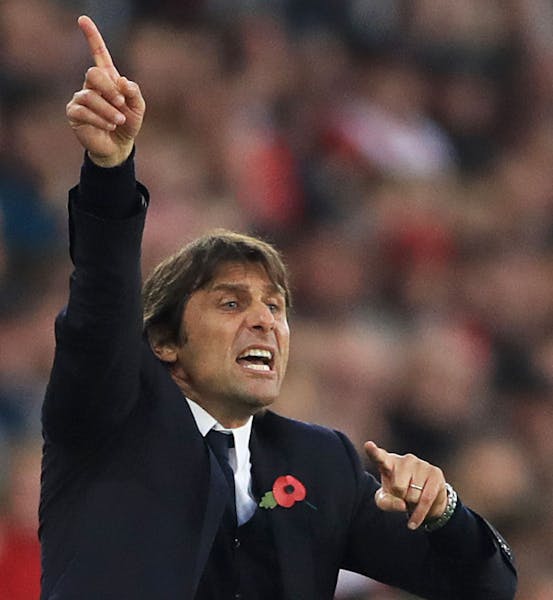Now that Jurgen Klinsmann has been fired as the coach of the U.S. men's national team, the U.S. Soccer Federation needs to admit that the problems that plague American soccer are bigger than just the person who calls the shots for the men's national team.
Go back to the aftermath of the 2006 World Cup. The Americans finished as one of the worst teams at the tournament, and coach Bruce Arena's man-management and questionable tactical decisions took much of the blame. His firing gave U.S. Soccer President Sunil Gulati the freedom to pursue the young manager of the German national team at the time, someone who had outfitted a new generation of players with a new tactical philosophy and helped smash decades of established German thinking: Jurgen Klinsmann.
Many of the same problems that afflicted Germany in the late 1990s and early 2000s were the same ones that Gulati and others had identified as being problematic for the United States. With Klinsmann leading the charge, Germany revamped its youth development system and training methods. The younger generation was more technically skilled and better coached. Players no longer depended on a combination of effort and toughness to win, the same method that Arena's U.S. teams leaned on. It's no wonder Klinsmann, whose wife and kids were Americans, was atop the list of future American coaches.
Gulati failed to land Klinsmann in 2006, reportedly because he refused to give Klinsmann full control of the program, something the coach craved after fighting the German establishment tooth and nail for several years. Five years later, Gulati relented, and Klinsmann took the job.
Unfortunately, the job of pushing all of U.S. Soccer forward turned out to be too difficult for one man. The new coach's dismissive attitude toward Major League Soccer quickly earned him the league's undying enmity. He also was unable to have much effect on the fragmented youth development system in America, which has too little money to eliminate too much backward thinking. What got him fired, though, was a series of failures of the team he actually coached — the most high-profile part of his job and arguably the part he was the worst at.
Bringing back Arena is an acknowledgment that the coach of the men's national team should be first and foremost an excellent coach. Arena, who has had success everywhere he has coached, fits the bill. He won't change the entire culture of U.S. Soccer, though, like Gulati wanted in 2006. Thanks to entrenched interests at every level of the game in America, Klinsmann couldn't make changes, either.
U.S. Soccer is right back where it was during Arena's first tenure: focusing solely on making sure the national team qualifies for the World Cup. Anything else is going to require painful changes by MLS, by college soccer, and especially in the rest of the youth development system. Until that happens, hiring one person to solve all of U.S. Soccer's problems is a foolish move.
SHORT TAKES
• At least there's still one American team that can beat Mexico. The U-20 women's team scored twice late, including the winner three minutes into stoppage time, to defeat Mexico 2-1 in the quarterfinals of the U-20 Women's World Cup. It's been kind of a rough year for the women's program, which didn't take a medal at the Olympics and didn't make it out of the group stage at the U-17 World Cup. Here's hoping the U-20s can find a trophy this year.
• Montreal's playoff game against Toronto last week seemed like a metaphor for the history of MLS. More than 60,000 fans packed Olympic Stadium in Montreal for the game, giving it the atmosphere and noise level mindful of a UEFA Champions League game. Unfortunately, as always with MLS, there was something just a little off. In this case, it was the penalty areas, which turned out to be 2 yards too narrow. The game was delayed a half-hour for the paint to dry on the new lines.
WEEKEND WATCH GUIDE
Premier League: Tottenham at Chelsea, 11:30 a.m. Saturday, Ch. 11. After Chelsea got smashed 3-0 by Arsenal in September, many people wondered how long it would take new manager Antonio Conte to get his side going. Since that day, the Blues have won six consecutive matches without conceding a goal and are atop the league. Conte's men should be considered the title favorites.
Bundesliga: Bayer Leverkusen at Bayern Munich, 11:30 a.m. Saturday, FS2. It's all a little unsettled at Bayern Munich right now, as the Reds have fallen off the top of the Bundesliga standings for the first time in seemingly half a decade. All it took was one loss to Borussia Dortmund and manager Carlo Ancelotti is under fire. Can the perennial champions right the ship?
MLS playoffs: Seattle at Colorado, 3 p.m. Sunday, ESPN. Seattle earned a 2-1 home victory in the first leg. But Colorado's away goal gives it the advantage in the tiebreaker, and the Rapids went the entire season without losing a game at home. Colorado hasn't been this close to the MLS Cup since winning it in 2010. Seattle is looking for its first-ever berth in the final.
Writer Jon Marthaler gives you a recap of recent events and previews the week ahead. • jmarthaler@gmail.com
Online: startribune.com/soccer

Reusse: How bad are the White Sox? They made Twins look good.
NFL draft has been on tour for a decade and the next stop is Detroit, giving it a shot in spotlight

Souhan: Wolves fans made Game 1 special. Now bring on Game 2.

Will Wolves show best-in-the-NBA defensive form in Game 2?

